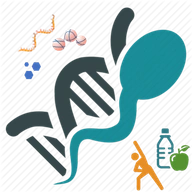Mechanism Underlying the Transduction of Epimutations from the Soma to the Male Germline
This project aims to address one fundamental question remains unanswered: given that the effects of exposures, either environmental or dietary, are presumably initially manifested as epigenetic changes in directly exposed somatic cells (e.g. pancreatic islet cells, adipocytes, hepatocytes, etc.), how do the phenotype-specific epimutations in somatic cells get transduced into spermatozoa? Data to be obtained will help fill the knowledge gap in our understanding of the molecular mechanisms underlying the intergenerational epigenetic inheritance of paternally acquired traits in general.
Project Leader
Dr. Wei Yan
Co-Investigator
Dr. Qi Chen
Significance
The proposed study is of high significance because of the following: 1) It will uncover the hidden pathways for epigenetic information to flow from somatic cells to sperm and thus, become heritable. Data to be obtained will fill a significant knowledge gap in our understanding of the molecular mechanism underlying the intergenerational epigenetic inheritance of paternally acquired traits in general. 2) Transmission of environment- or diet-induced epimutations from somatic to germ cells potentially represents a critical– and possibly manipulatable– step in the process of inter-/transgenerational epigenetic inheritance of disease phenotypes. Thus, findings of this study may lead to preventive and/or therapeutic measures to stop disease transmission from fathers to offspring. 3) It has the potential to reveal, at least partially, the etiology of the global obesity pandemic, which is the leading cause of the soaring incidence of metabolic diseases.
